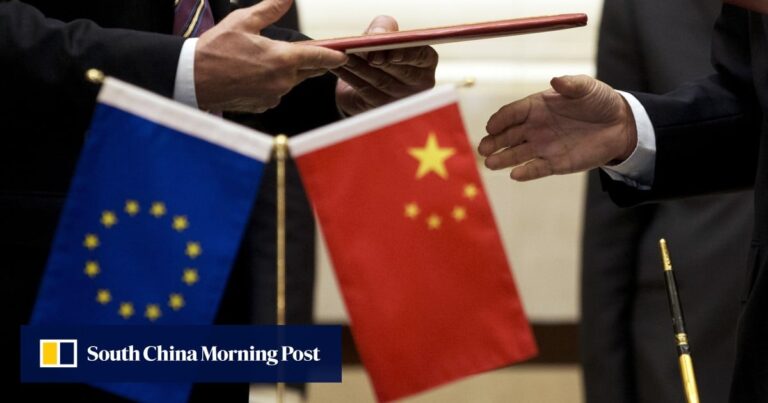The proposal was coordinated with the United States, which launched its own mechanism last year to block capital inflows into some Chinese industries.
As things stand, however, outbound screening appears to be the pillar least likely to be achieved.
“The imposition of national restrictions on European companies’ overseas investments is not the right policy for achieving economic security as it would significantly interfere with corporate business decisions and international investment flows,” said the submission from SEMI Europe, an industry group representing the global electronics manufacturing and design supply chain.
BusinessEurope, a lobbying group representing national-level chambers of commerce in EU member states, said it was wary of “any restrictions on foreign investment that are not due to sanctions.”
“It has a potential chilling effect which should not be underestimated as it could have a significant impact on research and innovation, the global activity of European companies and inward investment,” the submission said.
Groups in the Netherlands and Sweden also expressed skepticism, joining the voices of opposition to the policy proposals which remain unpopular among governments.
Some capitals are struggling to understand the need for potentially administratively burdensome measures, especially given the low levels of EU investment in these sectors of the Chinese economy.
Tobias Goerke, a geopolitics expert at the European Council on Foreign Relations, said von der Leyen’s best chance of getting the tool passed would be a “political deal” with the United States.
“[Outbound screening] “The EU has always had strong ties with the US and this was part of a political package to show the EU was serious about the risks of technology leakage. How it proceeds will likely depend more on transatlantic politics than any deep-seated evidence of damage,” he said.
“Obviously there is no strong domestic interest in moving it forward, but keeping the process alive and technically viable could help with political bargaining later.”
Of the 52 government agencies that took part in the EU consultation, only three were national government agencies (ministry departments in Austria, the Czech Republic and Sweden). Of these, two said there were “knowledge gaps” about the potential risks of technology leakage from foreign investment.
A recent report from the Paris think tank IFRI said Chinese European investment in the four sectors will be “very modest,” amounting to “between 2% and 4% per year” of total capital between 2019 and 2023. Most of these investments come from German companies, with 49 identified over the past two decades, followed by France (36), the Netherlands and Portugal (each with 12).
Moreover, there is a strong feeling in some capitals that another pillar of the strategy – a uniform EU-wide export control regime – would reduce the need for export checks, following the logic that companies would be less likely to set up factories to manufacture their products in jurisdictions where they are banned from selling them, for example.
The company is lobbying the EU to harmonize the different systems found in each country’s capital, arguing that 27 voices will be a stronger counterweight to the United States than one.
“With technology transfers already being taken into consideration with regard to Europe’s economic security, better coordination of export controls should be evaluated as a primary means of preventing technology leakage in areas of national security importance,” said the submission by SEMI Europe, of which ASML is a member.
The Commission will now begin a monitoring period with the 27 member states to record investment flows in the four areas and then prepare a risk assessment report.


